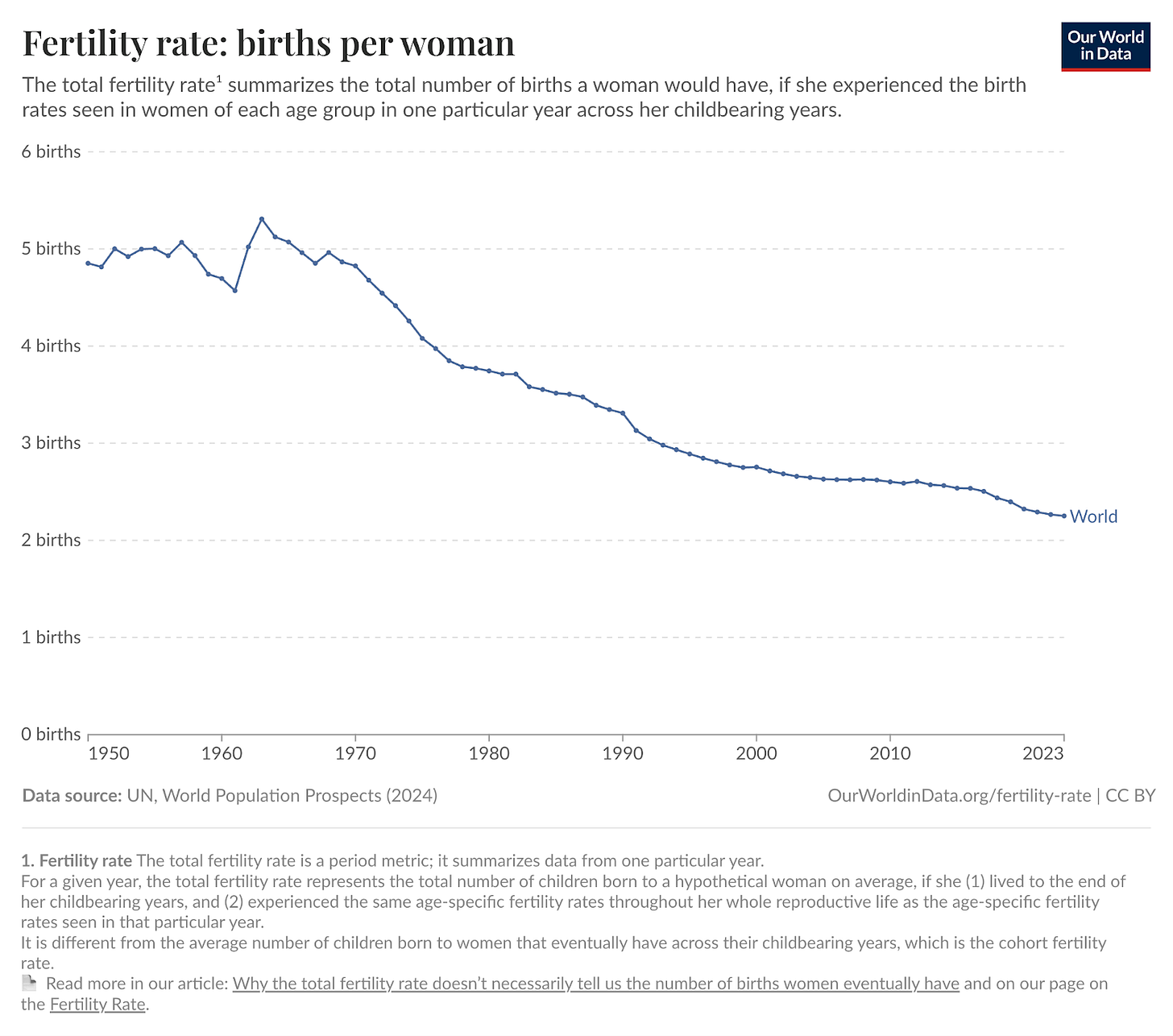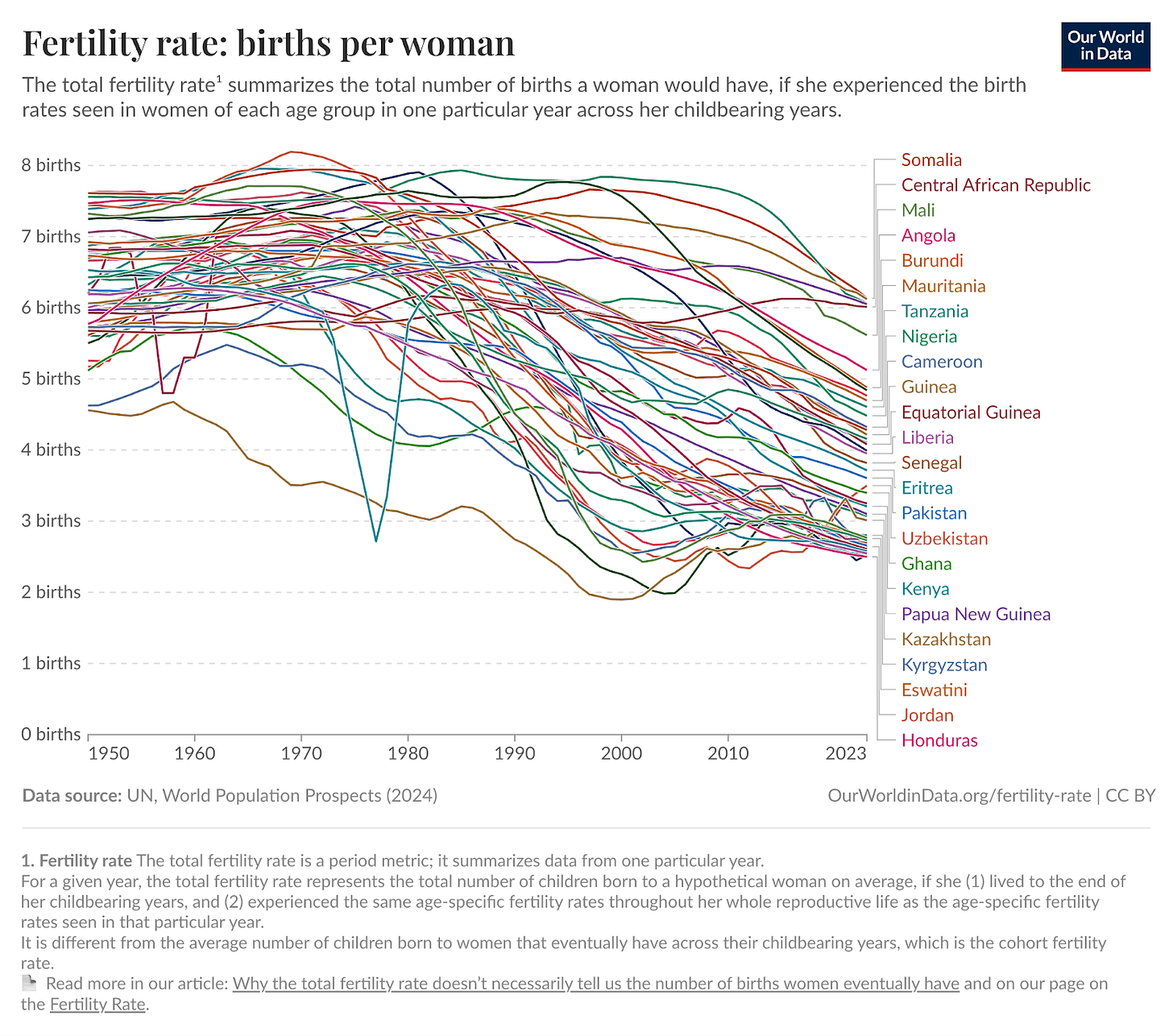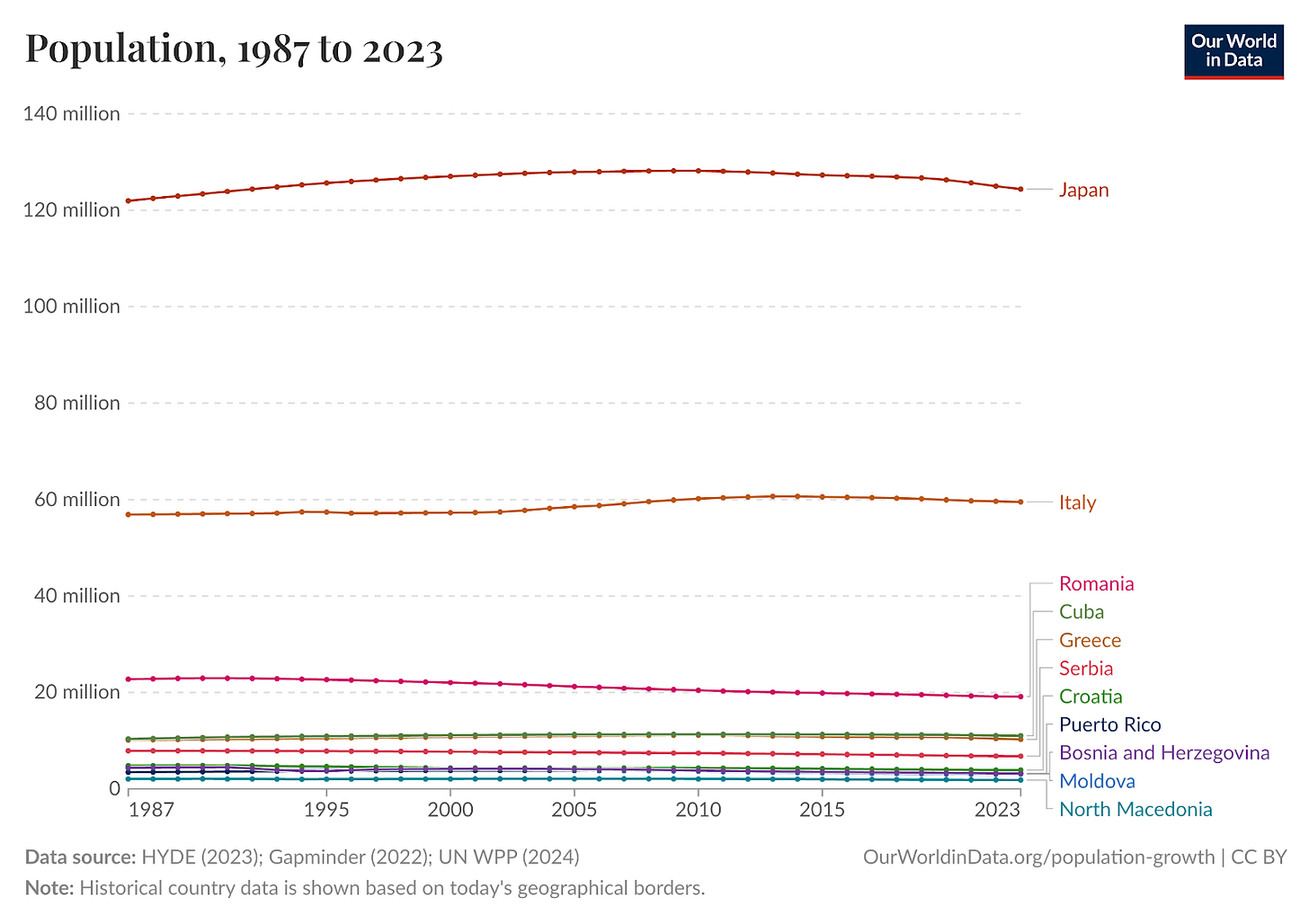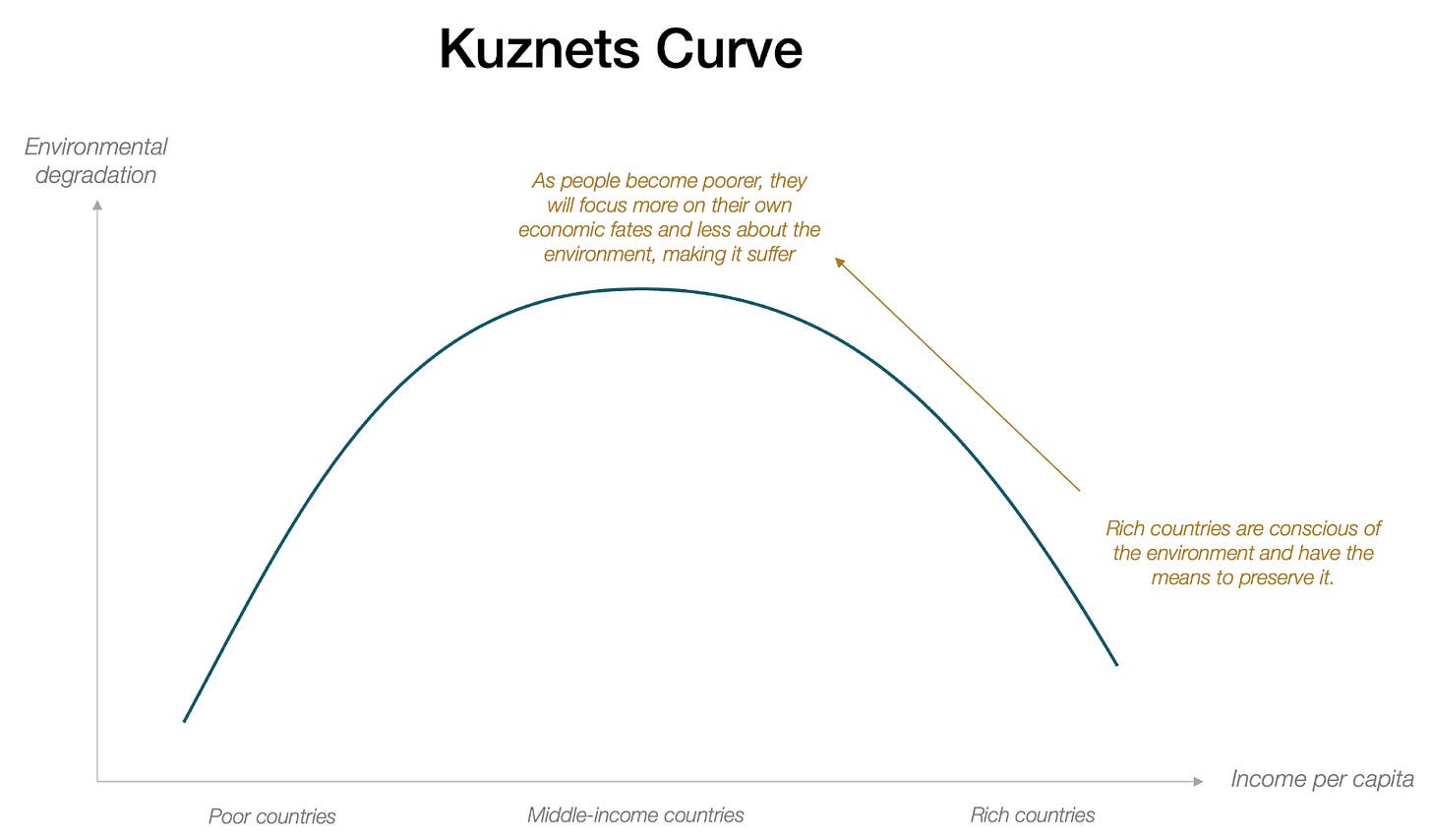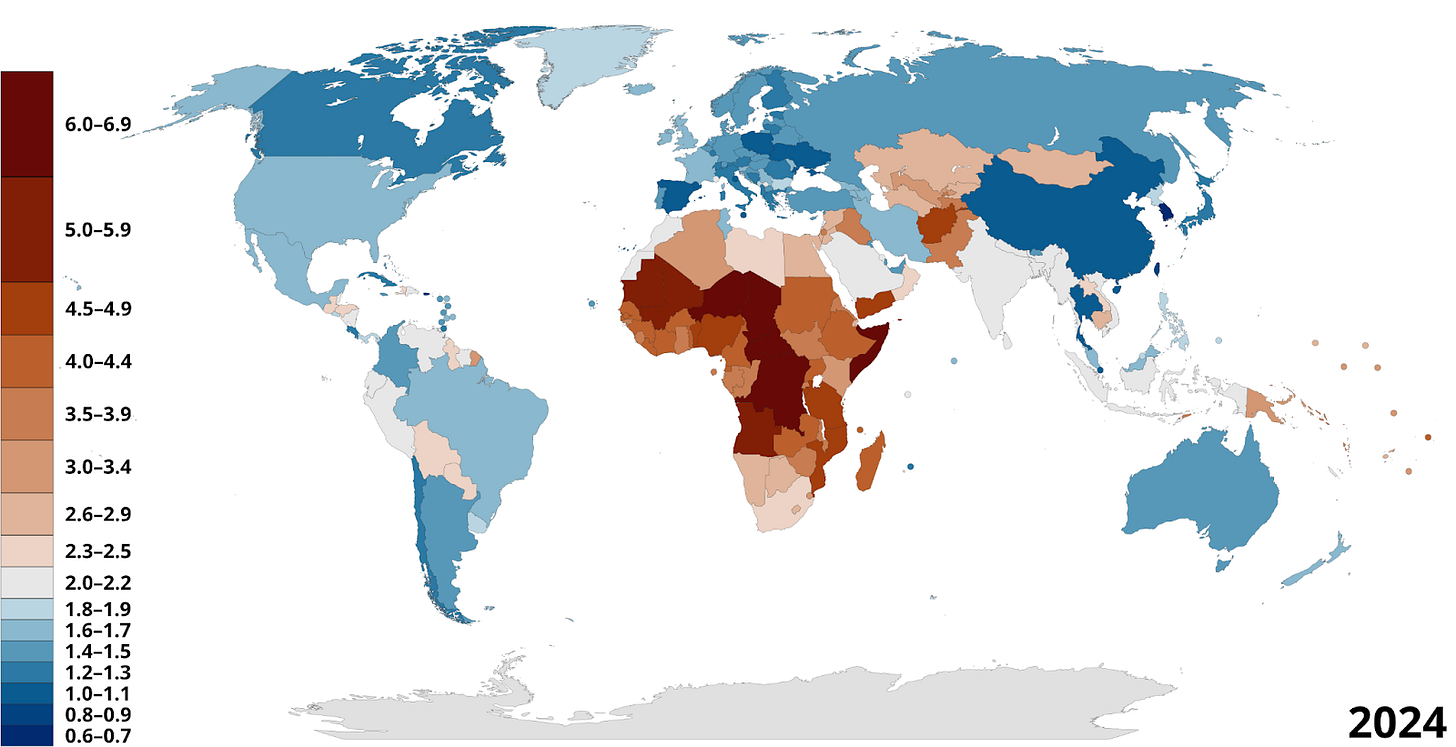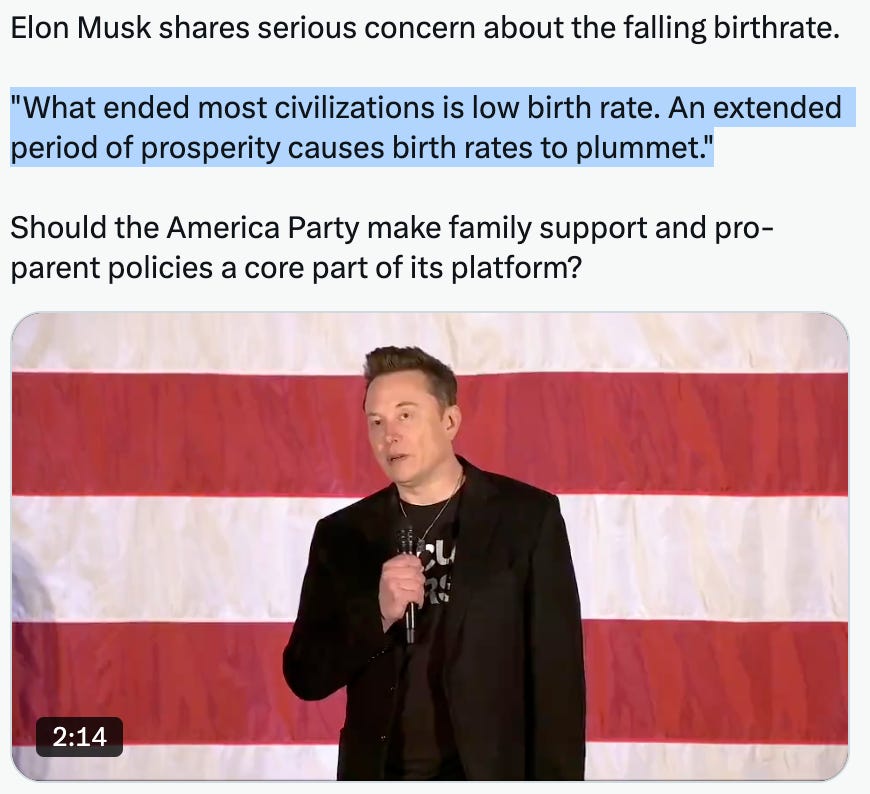Why Is Fertility Down, and How Much Should You Worry About It?
Fertility around the world is plummeting.
We’re at 2.3 children per woman, closing in on 2.1, because most countries’ fertility rate is going down, including that of virtually all high-fertility countries:1
Because of this, the population of some places is already shrinking, such as Eastern Europe, Italy, and Japan.2
South Korea is on track to lose 70% of its population every generation, so in two generations, it could go from the current 57 million people to 5 million, for a loss of 91% of the population in ~65 years.3
Globally, population will soon start to shrink:

As we noted in these articles about the future of population, this is bad because:
Fewer humans means fewer people to enjoy the world.
More old people to support means more taxation and an increasingly stagnant economy.
A shrinking population further shrinks the economy, which shrinks investments.
This means a much less innovative world: We’re used to a growing world where everything gets better, but we won’t witness that in a shrinking world. Everything will become old, stagnant. Innovation will grind to a halt. No more constant progress on things from TVs to cures to cancer.
When the economy shrinks, new economic opportunities don’t exist, so existing owners of capital tend to become rentiers and cling to their power. The envy of others translates into anger, and then into conflict.
The only upside people consider is for nature, but that positive impact won’t even be that high, because:
First, a shrinking population will barely make any positive impact on climate change.4
Second, a poorer world means a world that cares less about the environment.
Fourth, less investment also means less green investment, like slowed down solar transition and electrification of the economy.
On top of that, fertility is highly unbalanced:
Which adds another problem because some regions are still growing while others are shrinking, which means there will be population pressures, immigration, and ethnic conflict.
So low fertility is bad. It’s very bad. It ushers a world of conflict, poverty, and decline.
And yet we don’t know how to solve the problem!
Mostly, because we don’t even know what’s causing the drop in fertility!
It’s happening around the world at the same time, the transition can be dramatically fast, and the potential culprits include everything from urbanization to female education, better sanitation, later marriage, feminism, contraception, secularization, cultural expectations, the increased cost of educational signaling, increased cost of childrearing, disconnection of retirement from childrearing…
This list is not just long. It’s bad. Are we supposed to reverse feminism? Ban contraceptives? Expect abstinence? Tell parents to stop educating their children? Push people out of cities and into rural areas? Welcome diseases again? Force people to marry younger? Force religion down on them? Spend one million dollars per child? No, most of these changes are good for quality of life, and most would be impossible to revert even if governments tried.
Between the fact that we can’t diagnose the problem, and that many of these potential problems are nearly impossible to revert, the vast majority of countries that have tried to reverse this trend have failed (with Georgia as a notable exception).5
This is why so many people freak out about fertility:
These future trends in fertility rates and livebirths will completely reconfigure the global economy and the international balance of power and will necessitate reorganising societies.—co-lead author and Lead Research Scientist from IHME Dr. Natalia V. Bhattacharjee.
The decline in fertility rates is exposing us to the most serious aging in human history.—Niall Ferguson, historian
The worldwide population decline is set to begin decades ahead of expectations. Because global fertility trends are much worse than you think.—Jesús Fernández-Villaverde, Professor of Economics at the University of Pennsylvania
I used to be in this camp, but now I’d say I’m worried about fertility, rather than desperate. Why? Because of timelines and technology.


